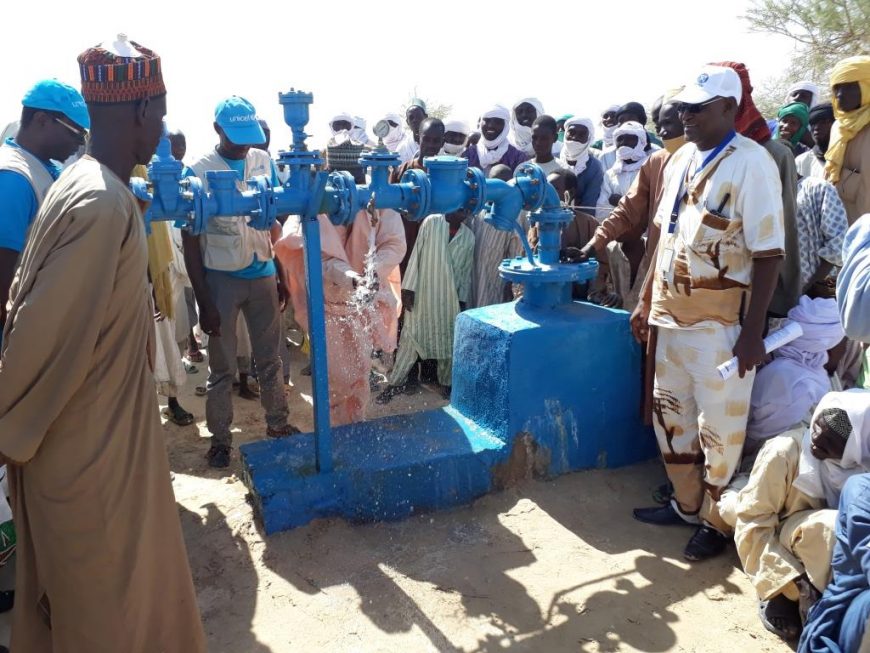Access to drinking water for 11,000 people in Blabrine
The massive influx of displaced people in Diffa has put considerable pressure on the already scarce water resources in the region, and the lack of access to sufficient and safe drinking water greatly increases the risk of cholera and diarrhoea epidemics.
The villages in the region are experiencing particularly worrying hygiene and sanitation conditions. In Niger, water-borne diseases remain one of the leading causes of death. This risk is even greater in the Diffa region, where the population has doubled since 2015 with the arrival of some 250,000 people displaced by violence.
The Blabrine site, near N’Guigmi, now hosts some 4,000 displaced people from Niger, Nigeria and Chad, as a result of conflicts in the Lake Chad basin. The Blabrine site is integrated into a village and hosts accommodates five displaced persons per capita.
There, ACTED built a deep borehole to address the lack of access to water and overcome the pressure on local resources, with support from the United States Agency for International Development (USAID).

Thanks to the Blabrine deep borehole, over 11,000 people have now access to sufficient and quality water, thereby contributing to reduce the risk of waterborne diseases and sustainably improve the living conditions of the displaced and host populations in Blabrine, Djakimea and Maliyari. As water is very scarce in the region, the teams had to dig down to 450 metres to reach quality drinking water, a technical feat in this desert region.
To improve sanitation conditions, the teams also built 325 latrines in collaboration with local communities. Through a water extension system, the Blabrine borehole will also supply the nearby village of Faya, where 50 latrines are currently under construction, supporting some 1,000 displaced and host community members.